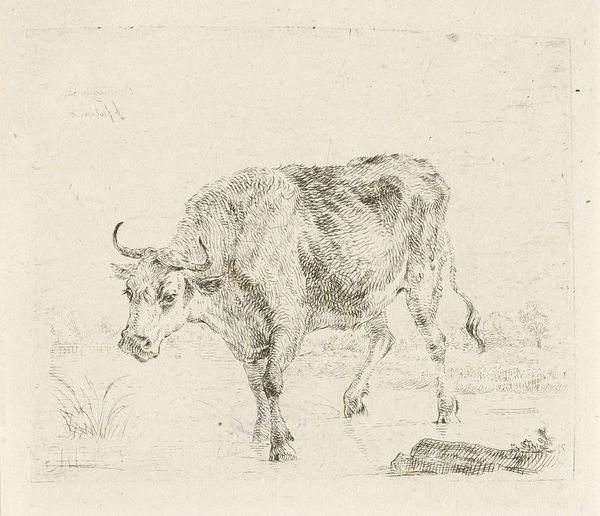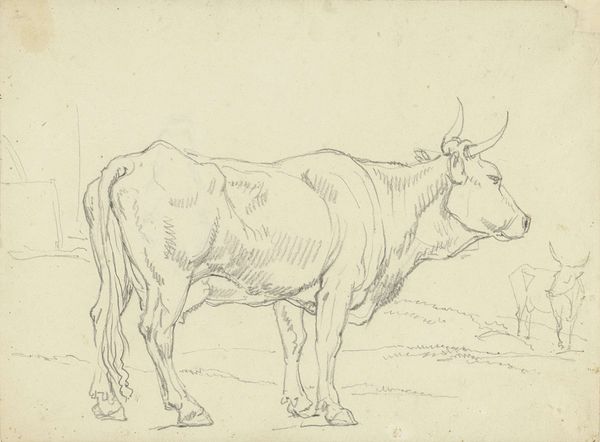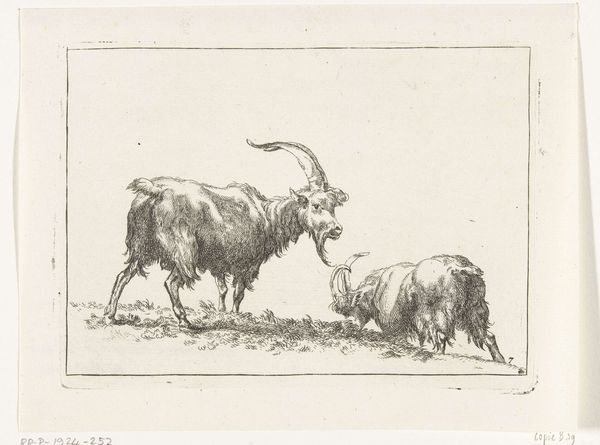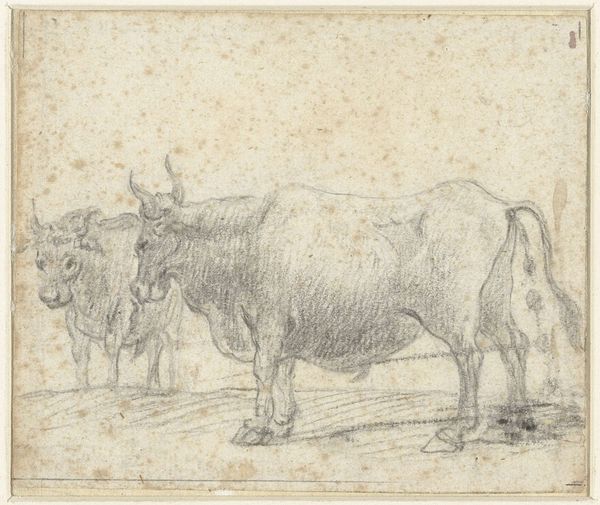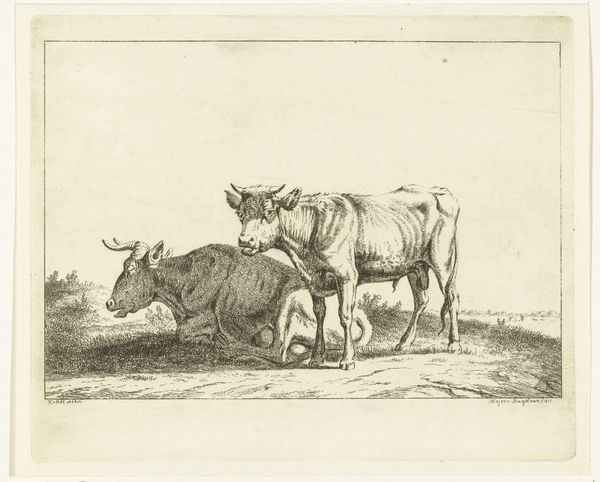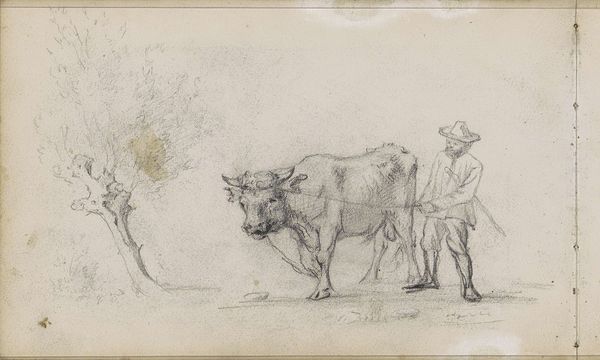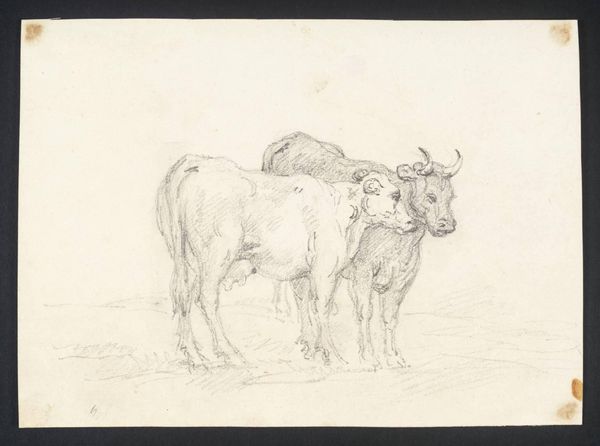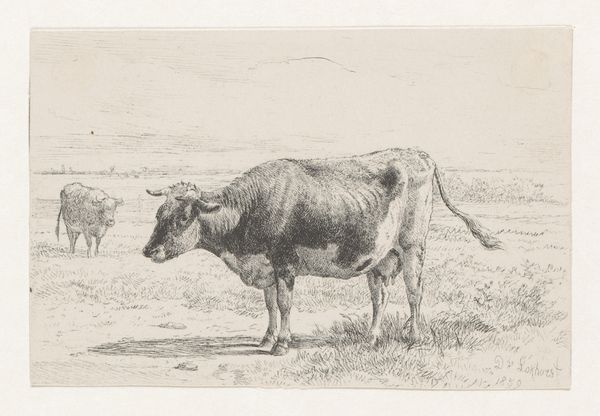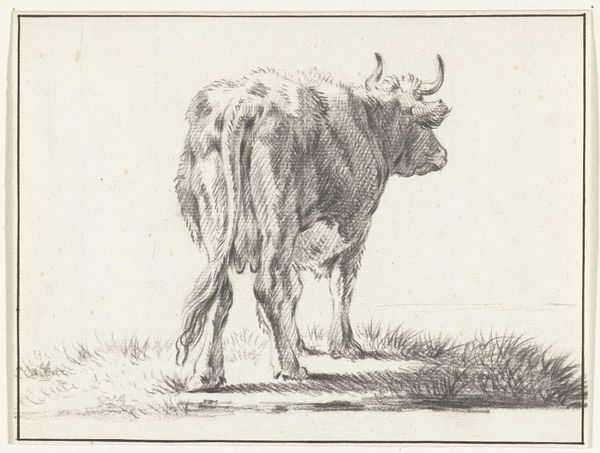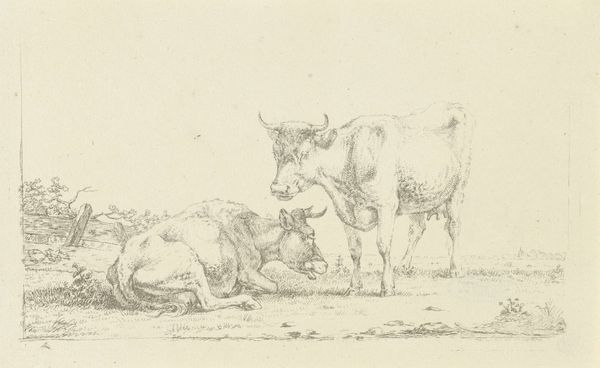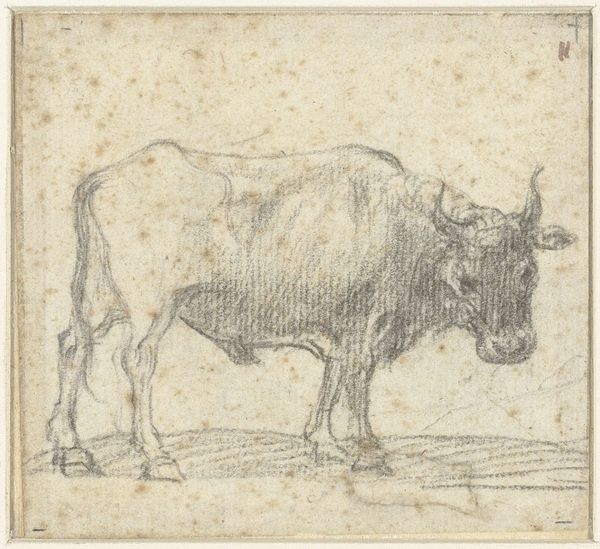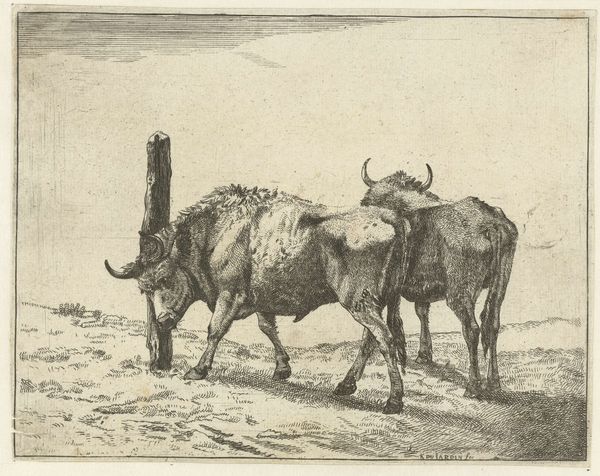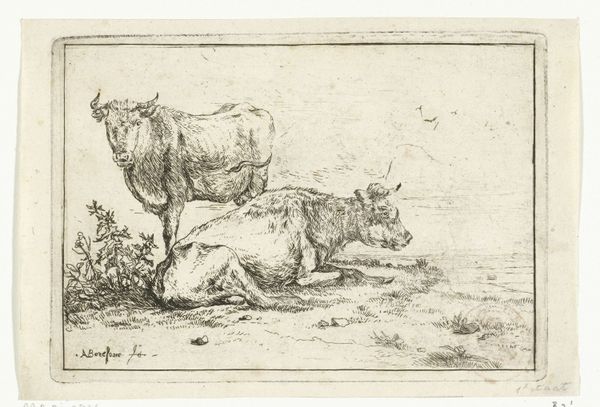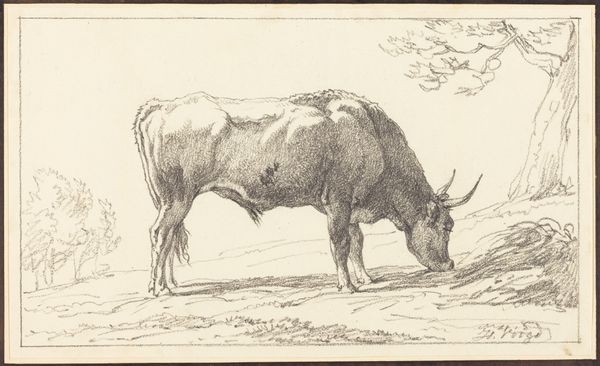
drawing, pencil
#
drawing
#
pencil sketch
#
landscape
#
pencil
#
genre-painting
#
realism
Dimensions: height 314 mm, width 452 mm
Copyright: Rijks Museum: Open Domain
Johannes Hubertus Leonardus de Haas created this drawing, titled "Ox before a plow," using pencil on paper. At first glance, it appears to be a simple pastoral scene, but it actually provides insight into the social conditions of 19th-century Dutch agriculture. We can imagine that this image was made at a time of huge transition in agriculture, with animal power soon to be replaced by mechanization. The image creates meaning through visual codes, referencing the historical association of rural life with ideas of purity and simplicity. De Haas doesn’t critique the institutional art world directly, but his choice of subject matter elevates the rural worker. The role of the historian in interpreting art like this is to consider the economic and social context in which it was made, using resources like agricultural records and social surveys. The meaning of this artwork is contingent on understanding these contexts.
Comments
No comments
Be the first to comment and join the conversation on the ultimate creative platform.
